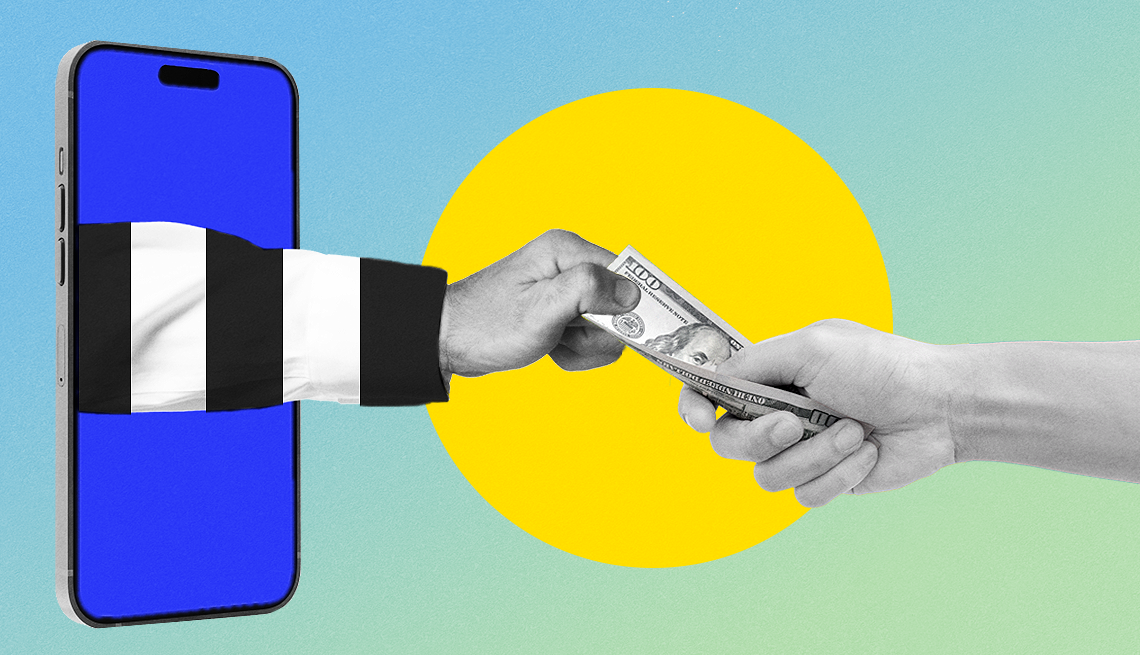AARP Hearing Center


In this story
Charity scams impact • Common charity scams • Red flags • Safe giving • Report scams • More resources
Individual Americans contributed a record $374.4 billion to charity in 2023, according to the Giving USA Foundation’s annual report on U.S. philanthropy. This generosity supports many amazing organizations that put those billions to work for health care, education, environmental protection, the arts and many other causes.
Unfortunately, it also opens a door for scammers. “Giving is very often an emotional decision, not necessarily a logical one,” says Bennett Weiner, executive vice president and COO of the Better Business Bureau’s Wise Giving Alliance, a charity-monitoring organization. “People want to respond to issues they care about or they hear about on the news.” And scammers capitalize on donors’ goodwill to line their pockets.
“The vast majority of nonprofit organizations that are raising funds are doing so ethically and by the book. I do think that there are unfortunately times when unscrupulous people exploit the trust and generosity of others,” explains Laura MacDonald, founder of the Benefactor Group, which advises charities on fundraising practices.
But it’s possible to ensure your donations go to organizations that are genuinely serving others, not helping themselves, by learning to recognize how scammers operate and taking a few precautions before handing over your check.
How charity scams work
Scammers appeal to your emotions with heartrending stories, then keep the bulk of the cash themselves. Like genuine nonprofits, they reach you via telemarketing, direct mail, email and door-to-door solicitations. They might make appeals on social media and create well-designed websites with deceptive names. Here are a few common tactics scammers use.
Capitalize on disasters and humanitarian efforts. Photos of people trying to rebuild their lives after a natural disaster or in an area of conflict can make us open our hearts and wallets. When these events are in the news, “questionable operators know that the iron is hot,” Weiner says. “People are likely to give unquestioningly and may give to the first request they get.”
Mimic a genuine charity’s name. Scammers often imitate the names of familiar, trusted organizations to deceive donors. “Some of the questionable operators are counting on the fact that you’re not going to look further to see if that’s the one you’re thinking of and you’re just going to give,” Weiner says.
Pretend you have given before. Scammers often exploit those with cognitive issues who might not recall their giving history. They “will call people, and they’ll imply that they have already made a pledge in the past and that they’re just calling to follow up on where their donation is,” says Laurie Styron, CEO of CharityWatch, an independent charity-monitoring organization.
Use online crowdfunding. You may get a plea on social media to help someone who has a devastating illness such as cancer or has lost their home due to fire. Anyone set up an account on a crowdfunding site and post a fake story and photos. “They can have that campaign set up and then be gone in a blink of an eye,” Styron says.





































































More on Scams and Fraud
What to Do If You've Just Been Scammed
How one woman worked quickly — with help — to avoid being charged through PayPal
How to Tell if an Online Photo Is Fake
A reverse image search can help you spot doctored picturesHow To Avoid Government Grant Scams
Scammers pretend to be government officials who tell unsuspecting people they’ve been awarded money
Recommended for You